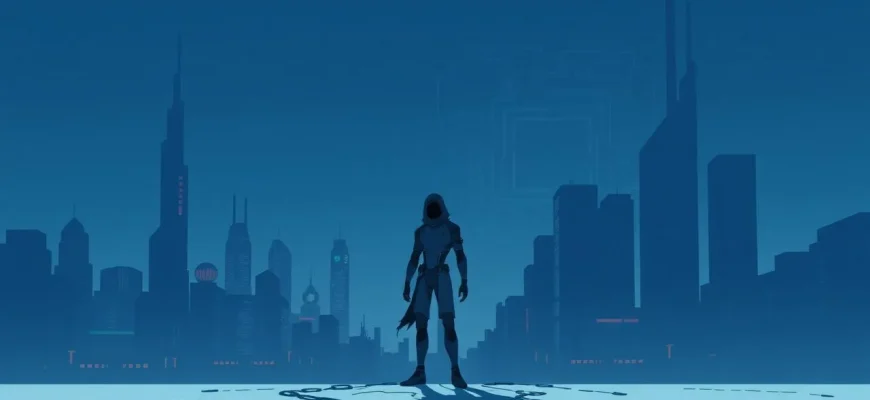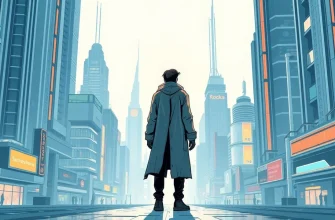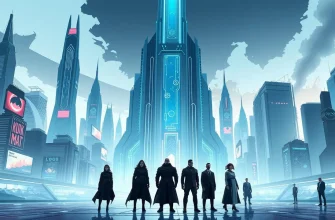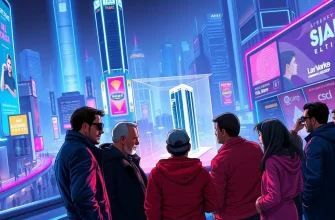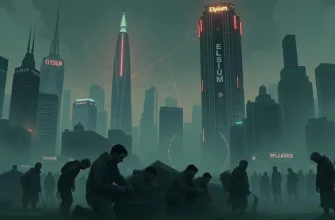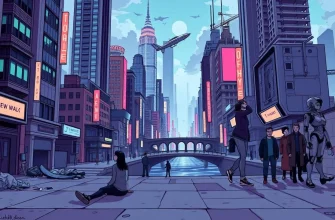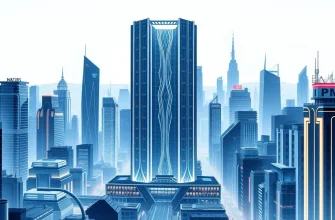In a world where technology and society evolve at a breakneck pace, the theme of social inequality has become increasingly relevant. These ten sci-fi films not only entertain but also provoke thought, offering a mirror to our own society's struggles with class divides, power dynamics, and the quest for equality. From dystopian futures to alternate realities, these movies provide a unique lens through which to view the complexities of human interaction and the societal structures that shape our lives.

A Clockwork Orange (1971)
Description: Stanley Kubrick's adaptation of Anthony Burgess's novel explores themes of free will, violence, and the state's control over individuals, reflecting on the social inequalities created by authoritarian regimes.
Fact: The film's title is derived from an old Cockney expression, "as queer as a clockwork orange," meaning something bizarre or unusual.
 Watch Now
Watch Now 
Brazil (1985)
Description: Terry Gilliam's dark comedy-drama portrays a dystopian future where bureaucracy and technology have run amok, creating a society where the individual is crushed by the system, highlighting themes of social inequality and the absurdity of bureaucratic control.
Fact: The film's title refers to the song "Aquarela do Brasil," which plays during a dream sequence, symbolizing an escape from the oppressive reality.
 Watch Now
Watch Now 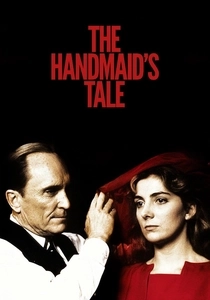
The Handmaid's Tale (1990)
Description: Based on Margaret Atwood's novel, this film depicts a totalitarian society where fertile women are forced into sexual servitude to repopulate a dystopian future, highlighting extreme gender inequality and the loss of personal freedom.
Fact: The film was adapted into a critically acclaimed TV series in 2017, which expanded on the themes of social inequality and resistance.
 Watch Now
Watch Now 
Gattaca (1997)
Description: In a genetically engineered society, "Gattaca" explores the divide between the genetically enhanced and the naturally born, showcasing the discrimination and social inequality that arises from genetic determinism.
Fact: The film's title is derived from the letters of the four DNA bases: guanine, adenine, thymine, and cytosine.
 Watch Now
Watch Now 
The Matrix (1999)
Description: While primarily known for its action and philosophical questions, "The Matrix" also touches on themes of control, freedom, and the divide between those who are aware of the true nature of reality and those who are not, reflecting social inequality in a digital age.
Fact: The Wachowskis initially pitched the film to several studios, but it was Warner Bros. who finally agreed to produce it, seeing its potential to redefine the sci-fi genre.
 Watch Now
Watch Now 
Equilibrium (2002)
Description: In a future where emotions are outlawed to prevent war, "Equilibrium" explores the suppression of individuality and the resulting social inequality. The film's protagonist begins to question the regime, leading to a rebellion against the oppressive system.
Fact: The film's director, Kurt Wimmer, also wrote the screenplay, drawing inspiration from works like "Fahrenheit 451" and "
 Watch Now
Watch Now 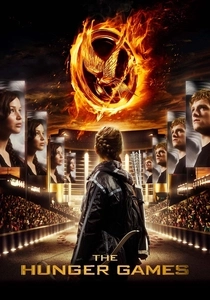
The Hunger Games (2012)
Description: Set in a dystopian future where the Capitol controls the twelve districts through an annual event where children fight to the death, "The Hunger Games" highlights the stark contrast between the affluent Capitol and the oppressed districts, reflecting themes of social inequality and resistance.
Fact: The film was shot in North Carolina, with the Capitol scenes filmed in Charlotte, showcasing the opulence of the Capitol against the backdrop of the impoverished districts.
 Watch Now
Watch Now 
Elysium (2013)
Description: In this futuristic thriller, the rich live on a luxurious space station named Elysium, while the rest of humanity suffers on an overpopulated, ruined Earth. The film explores themes of class division and access to healthcare, making it a poignant commentary on social inequality.
Fact: Elysium was Neill Blomkamp's follow-up to his critically acclaimed film "District
 Watch Now
Watch Now 
Snowpiercer (2013)
Description: After a failed climate-change experiment, the last remnants of humanity live on a perpetually moving train. The film delves into the class struggle between the tail-section dwellers and the elite in the front, making it a compelling study of social stratification.
Fact: The film was based on the French graphic novel "Le Transperceneige" and was Bong Joon-ho's first English-language film.
 Watch Now
Watch Now 
The Lobster (2015)
Description: In this surreal, dystopian world, single people are given 45 days to find a romantic partner or be transformed into animals. The film satirizes societal pressures to conform and the inherent inequalities in relationships and social structures.
Fact: The film's director, Yorgos Lanthimos, is known for his unique storytelling style, blending dark humor with social commentary.
 Watch Now
Watch Now 
